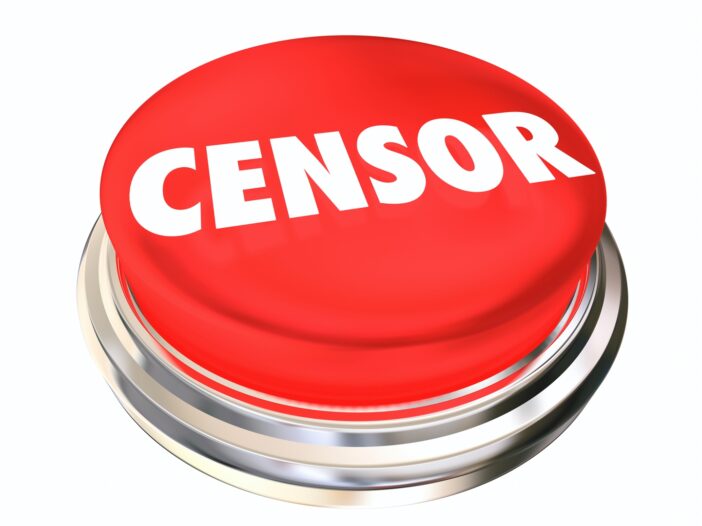Dear Reader,
There are many lessons to be learned in the wake of COVID-19.
Some lessons will be more expensive — and certainly more painful — than others.
In today’s edition of The Daily Reckoning Australia, Jim Rickards highlights some of the lessons we can learn — not only in a financial and economic sense but politically and socially too. But will it be too little too late?
Until next time,
 |
Shae Russell,
Editor, The Daily Reckoning Australia
Expensive Lessons
We all realise the economic landscape keeps changing. Yet some things are always the same, or at least should be. Bankruptcy is a good example.
Before a company goes bankrupt, investors might agree or disagree on the prospects for that company. Some would bet that the company will recover or get a last-minute loan from a white knight or supportive bank. Others would bet that the company would go bankrupt and short the stock.
Another class of investor would buy debt or make loans and then hope for bankruptcy so they could take the place of the former stockholders — a strategy called ‘loan to own’. Still, once the company files for bankruptcy the game is over.
Generally, equity gets wiped out and creditors take a haircut and receive new equity in the reorganised company. You clean up contracts, leases, etc and then return the company to markets with a clean balance sheet and a fresh start. At least that’s how things used to work. Not anymore.
Robinhood to the rescue
Hertz filed for bankruptcy on 22 May. Then a crazy thing happened. Newbie investors who had just received their coronavirus stimulus cheques opened online retail accounts at brokers like Robinhood and started buying Hertz! The stock was sure to end up with zero value, but they didn’t care. If you bought it for US$1.00 per share and could dump it for US$3.00 per share, you tripled your money even if the stock ends up at zero.
That’s crazy enough, but then things got crazier. Hertz saw its stock price going up and decided to sell US$1 billion of stock in a new issue MarketWatch told us recently.
Investment bank Jefferies Co agreed to underwrite the deal. The SEC signed off on the offering document. Of course, in bankruptcy you must get approval from the bankruptcy court. Many assumed the judge would put an end to the nonsense, but he didn’t. The judge approved the deal.
Just to be clear, if Hertz raises US$1 billion, that money will go straight to creditors. Stockholders will still get zero. That’s why the judge approved the deal, because his job is to help the creditors. This will be an expensive lesson in bankruptcy law for those who buy the equity…unless they sell to another sucker just in time.
Lessons from the French Revolution
One of the leaders of the French Revolution in 1789 was Maximilien Robespierre. He was responsible for erecting the guillotine, which resulted in the decapitation of thousands of counterrevolutionaries and members of royalty, including King Louis XVI and his wife, Queen Marie Antoinette.
Guess where Robespierre ended up? Right, he had his head chopped off by guillotine in 1794. This is a perfect example of how revolutionary and violent forces come back to strike the very people who unleashed those forces. Revolutionary leaders start out as radicals, but they are soon pushed aside by another group who are even more radical.
The second group views the first group as retrogressive and subjects them to the same punishments they inflicted on the original victims. This also happened during the Russian Revolution and in many other historical cases. Something similar is going on in the US today without quite as much violence.
There’s a war on free speech
It’s not about the left wing criticising the right wing; that’s old news. It’s about the radical left criticising the moderate left, as described in this article. This is a long and slightly technical read but well worth the time and effort.
We were all taught that the best way to settle political differences was free speech and the ballot box. Two sides could disagree, but they would take their opposing views to the people through the medium of a free press and then let voters decide on election day. The losing side wasn’t banned; they got to try again in the next election. Eventually a consensus might have been reached.
Beginning in the 1950s, another view emerged from left-wing philosophers. This view said that most ideas might be entitled to free speech, but some ideas were so repugnant that they were not entitled to free speech protection; they should be banned and suppressed.
In the US, this is directly antithetical to the ideas of the US Constitution and the First Amendment. And it begs the question of who gets to decide what ideas are protected and which are not. Of course, the far left has an easy answer to that question: We decide and you shut up!
[conversion type=”in_post”]
The growing threat of thought control
This philosophy has now moved to the point where writers, editors, professors and others in the public eye are being fired almost on the spot for a single tweet or blog posting that offends someone in the far-left mob.
The real damage is not just to those who speak their minds. It affects those who keep their opinions to themselves for fear of offending someone or getting fired. This kind of direct and indirect thought control is exactly what George Orwell warned about in his novel Nineteen Eighty-Four.
Don’t assume this won’t happen to you; it can happen to any of us. It’s not just a political issue. This kind of thought control hurts invention, innovation and economic progress.
All the best,
 |
Jim Rickards,
Strategist, Strategic Intelligence Australia

